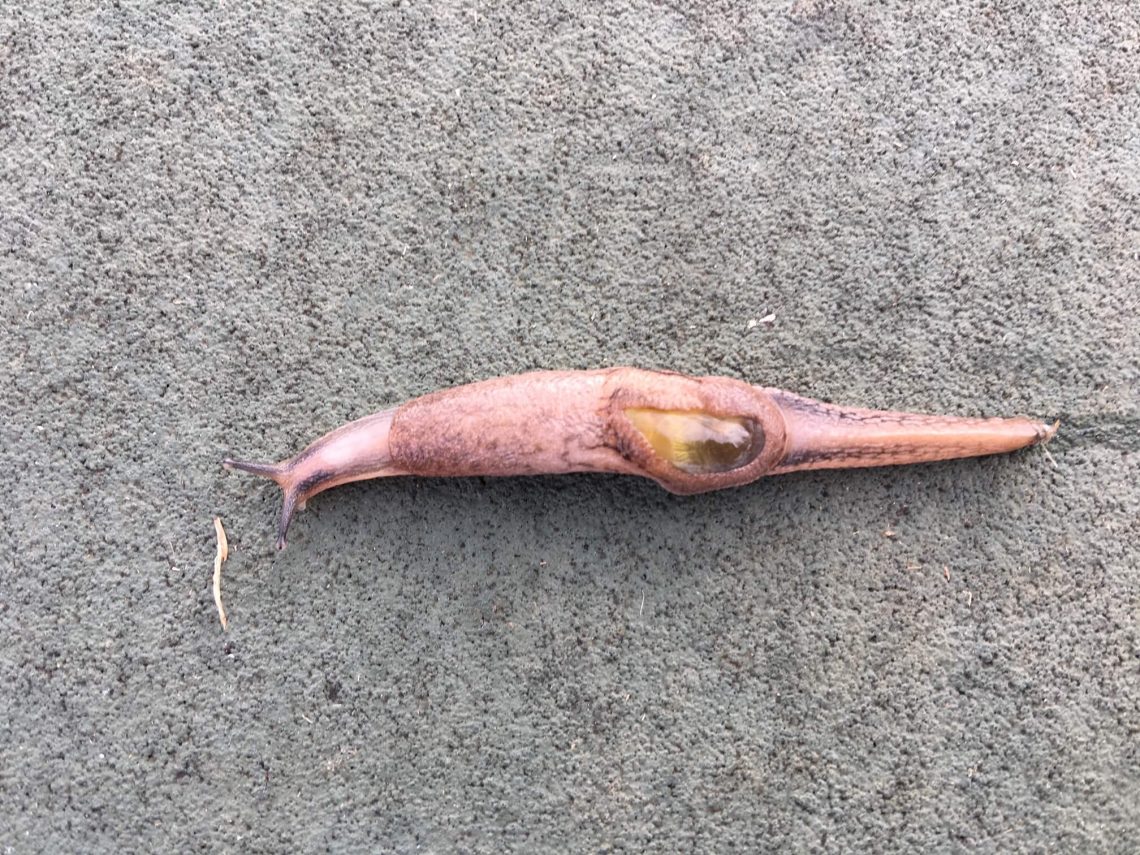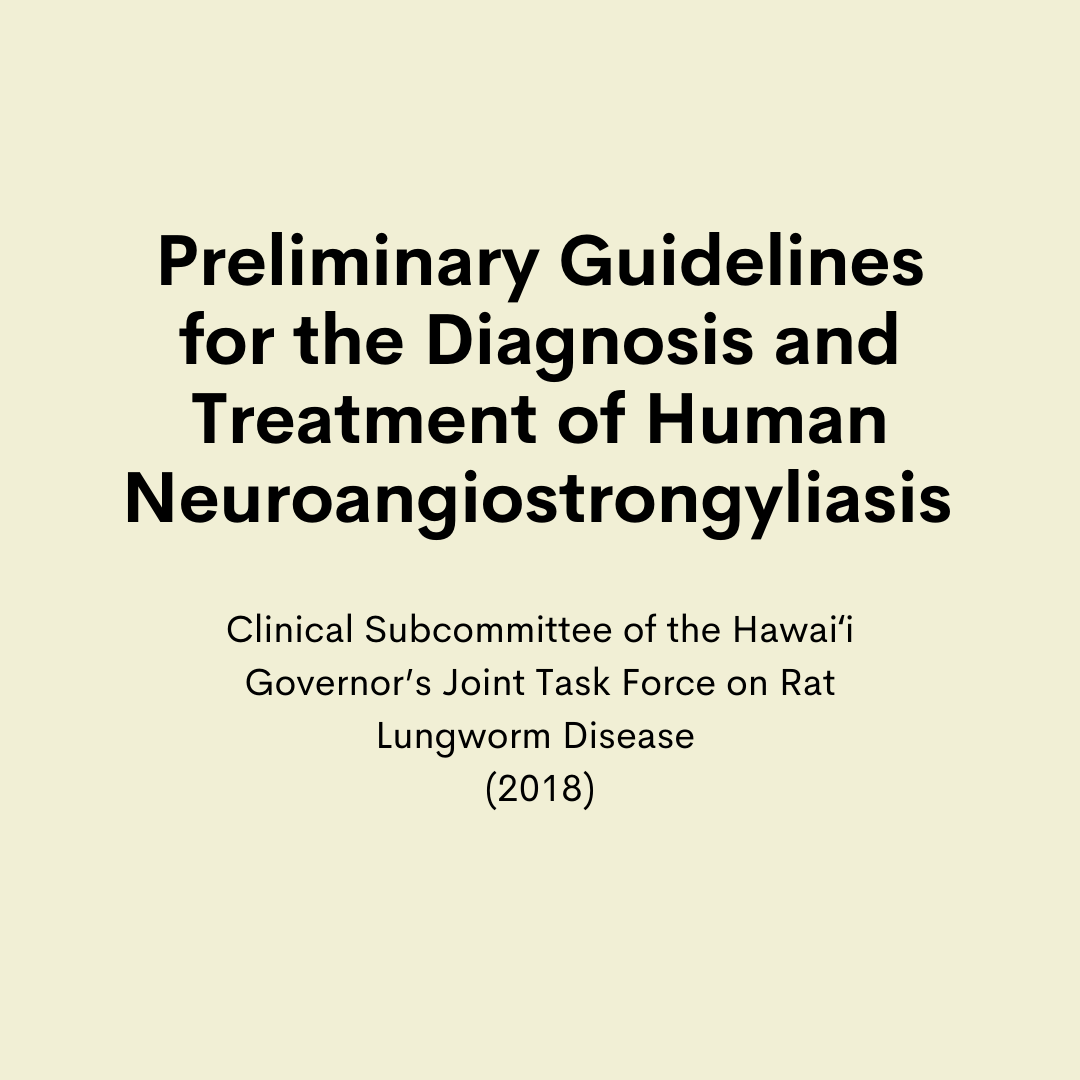


Below are the published guidelines in Hawai‛i for medical treatment. Please print & share with your provider:



Caused by the parasite Angiostrongylus cantonensis, rat lungworm disease (RLWD) is a serious health concern in Hawai‛i. The parasite is a nematode (worm) with a two-host life cycle, meaning that to move completely from egg to reproducing adult, it must spend part of its life in two different animals. This cycle starts in the lungs of a rat, where eggs hatch into larvae that are passed in feces. Gastropods (slugs and snails) will then consume the rat feces, and the larvae will continue their development in the slug or snail until they are eaten by a rat, where they can reproduce and begin the next generation.
The danger for humans comes when we interrupt the second transition, by accidentally eating a slug or snail which has been infected with A. cantonensis larvae (rats do not shed larvae at a stage that is infectious to humans, but as other human diseases are spread in rats feces, contact and ingestion should be avoided). Disease symptoms range from mild illness to severe debilitation, coma, and even death. Many survivors of RLWD report permanent injury from the disease.
All snails and slugs – even endangered native snails – can carry the parasite, although one slug, in particular, has been associated with increased incidence and severity of disease. The Parmarion martensi, or “semi-slug,” has been show to have the ability to carry a very high parasite load, which may be associated with the level of severity of RLW disease. As of early 2019, the semi-slug has been confirmed as established from Volcano to Kalapana, through Hilo, and up the coast into North Kohala, and is quickly continuing to spread across the Big Island.

Jan 2020 Update: After the 6th International RLW Workshop, new information was made available that could help residents and visitors who accidentally consume a snail or slug. Based on guidelines from Australia and on preliminary research by collaborators including the Jarvi Lab, the commonly available OTC pinworm medicine containing the active ingredient pyrantel pamoate has been suggested as potentially helping to mitigate the development of serious disease. Remember to freeze any snail or slug pieces for testing to determine presence of the RLW parasite! Click here to read the full advisory.